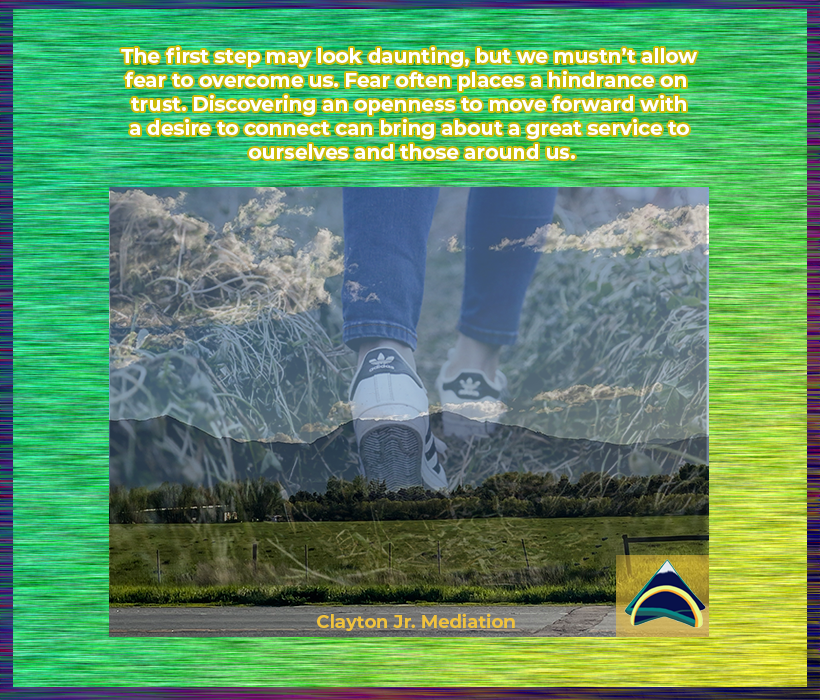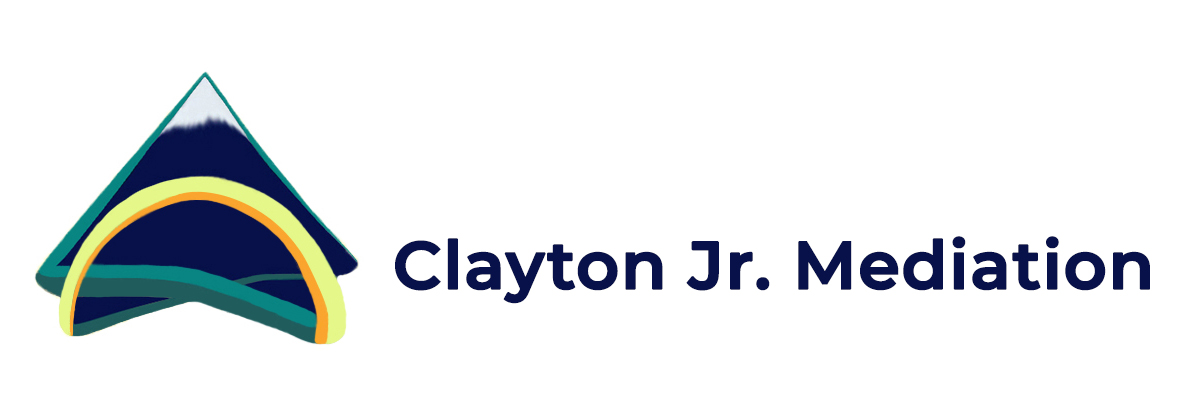
When making a good faith effort to resolve conflict and to build agreements, our practice acknowledges and takes into account the general disposition of all parties. This is important to helping us understand things like situational dynamics. Similarly, when getting to know folks from the get-go, we enjoy sharing with them how incredibly valuable it is for us to build rapport. Why is this the case? Perhaps there are many reasons I could point to — certainly, among these are buy-in and trust. In our societies today, we find many instances of strain on relationships when it comes to these fundamental aspects of communication and collaboration. It may go without saying that conflict resolution is generally more effective with the presence of trust and buy-in. Our work is to support folks with the processes of mediation, facilitation, and conflict coaching — strengthening trust and buy-in is a good way to make those processes more effective.
We put our trust in you
Many people we work with are surprised when I say, “I’m handing this over to you”, or “I must put my trust in you here”. Understandably so, given that the processes, factors, and some people around conflicts may encourage or influence the opposite. However, if I do not have faith in you as a practitioner, then how can I confidently believe that I can help? If I don’t trust, my faith can be misplaced. Putting my trust in parties creates transparency and opens doors. If it doesn’t, that often reveals the boundaries of my work — I’ll grasp that nettle every time. Furthermore, it seems practitioners have a critical duty to uphold this in that they can help to develop buy-in and trust by demonstrating them, especially when doing so authentically.
Worthy of taking the first step
The initial effort of rebuilding or creating new buy-in or trust, may be the hardest step to take sometimes. Going through the various experiences of life typically surfaces humility around the notion that it can be difficult to trust again or work with someone who shares different views concerning a formidable dilemma. Each set of circumstances we assist folks with cannot be generalized — it is case by case although broadly speaking this is a relatable theme for many of those we serve. To this end, I’m always on the lookout for pathways that may help parties find buy-in and trust on their own terms. This can be thoughtfully and respectfully encouraged in many situations because there is no coercion, rather it is a simple invitation. When parties take the first step in this way, countless possibilities rise to the surface in the processes of mediation, facilitation, and conflict coaching.
Potential for better days ahead
Communication, creativity, and consensus. The “three C’s”! There is usually a shared agreement on positive goals and the means of getting there. Yet, working through the details of disputes, for example, is where things often get bogged down. This is why there is absolute value in establishing a foundation of buy-in and trust from the outset. While it may take time to get there, candid dialogue and the ease of tension can pave the way towards building lasting resolutions. At the core of conflict resolution rests the opportunity to transform difficult matters of all kinds into outcomes that set folks up for a better way of life moving forward. Despite the challenges, perhaps this is the greatest potential outcome, in particular that we are mutually taking steps to creating buy-in, trust, and resolutions.
CJ Clayton Jr.
07/20/2023
